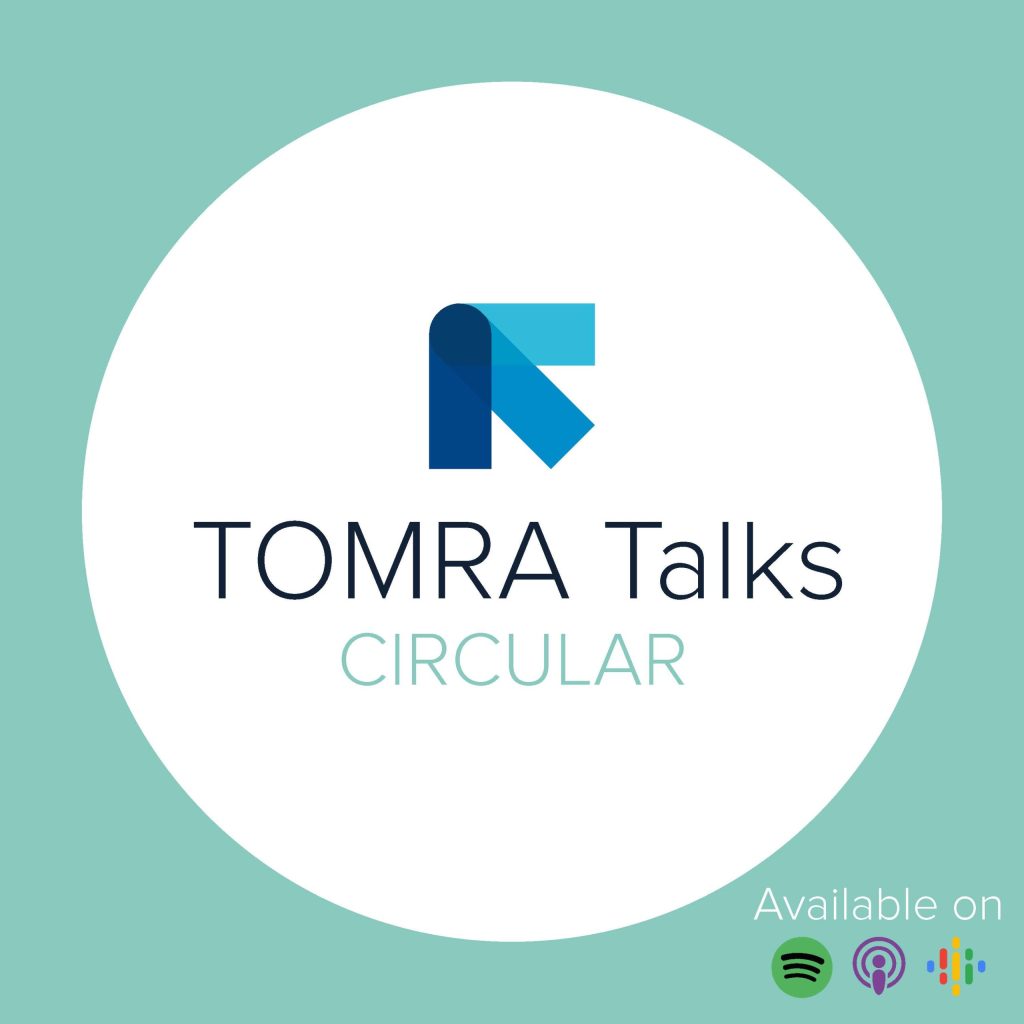
Reloop’s Clarissa Morawski explores the complicated matter of moving towards a circular economy on the TOMRA Talks Circular podcast.
Reloop News

Reloop’s Clarissa Morawski explores the complicated matter of moving towards a circular economy on the TOMRA Talks Circular podcast.
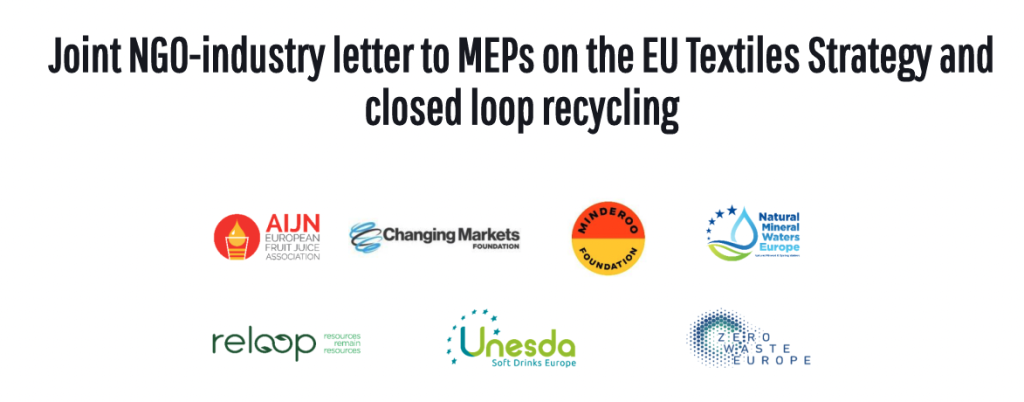
The letter focuses on the issue of downcycling PET beverage bottles in textiles claimed to be “sustainable” or “circular.”
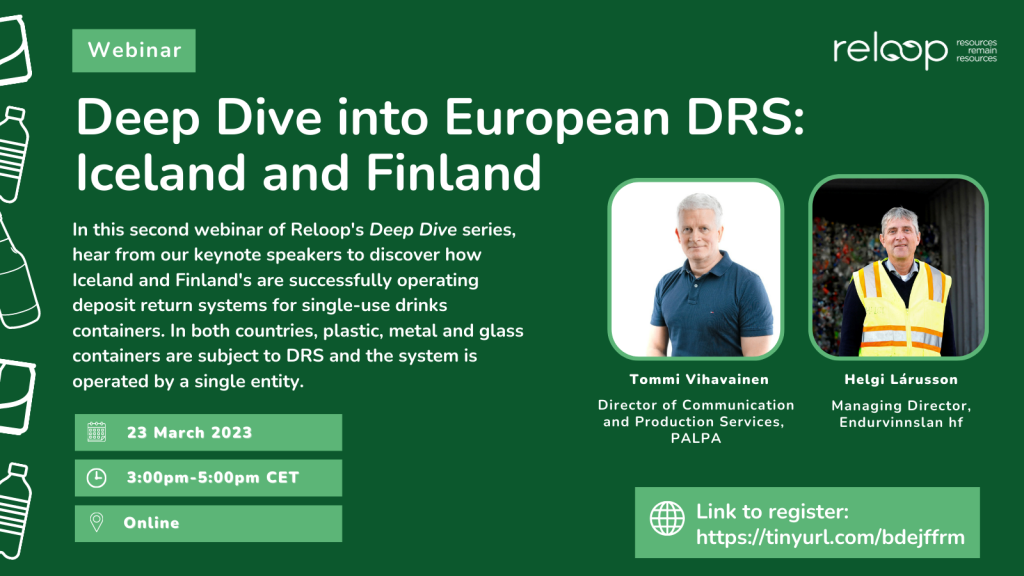
Join us for the second webinar in Reloop’s Deep Dive into European DRS series, as we explore the deposit return systems (DRS) in Iceland and Finland.
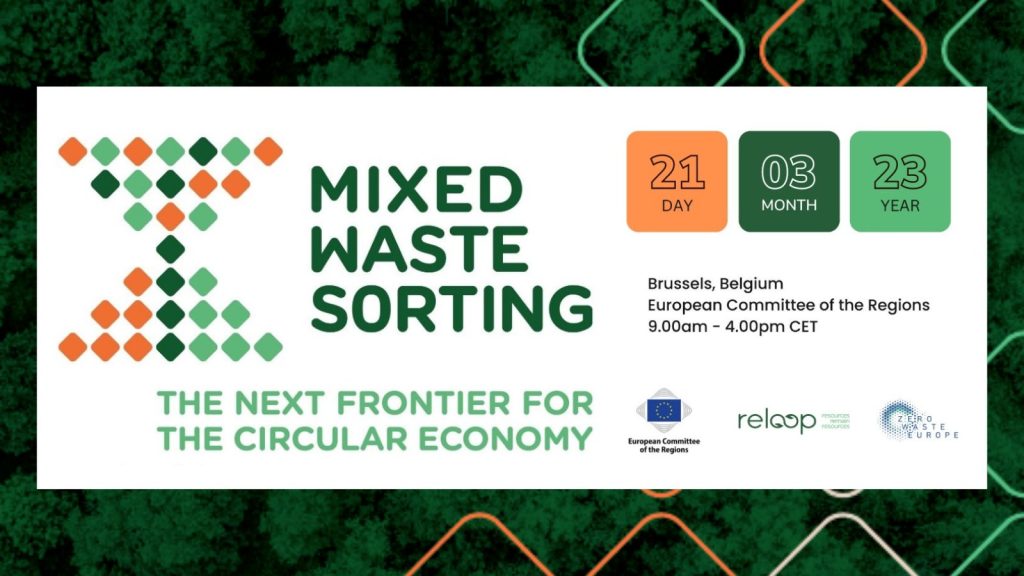
Mixed Waste Sorting: The next frontier for the circular economy.” conference will take place on March 21, 2023, in Brussels, Belgium, from 9 AM to 4 PM CET.
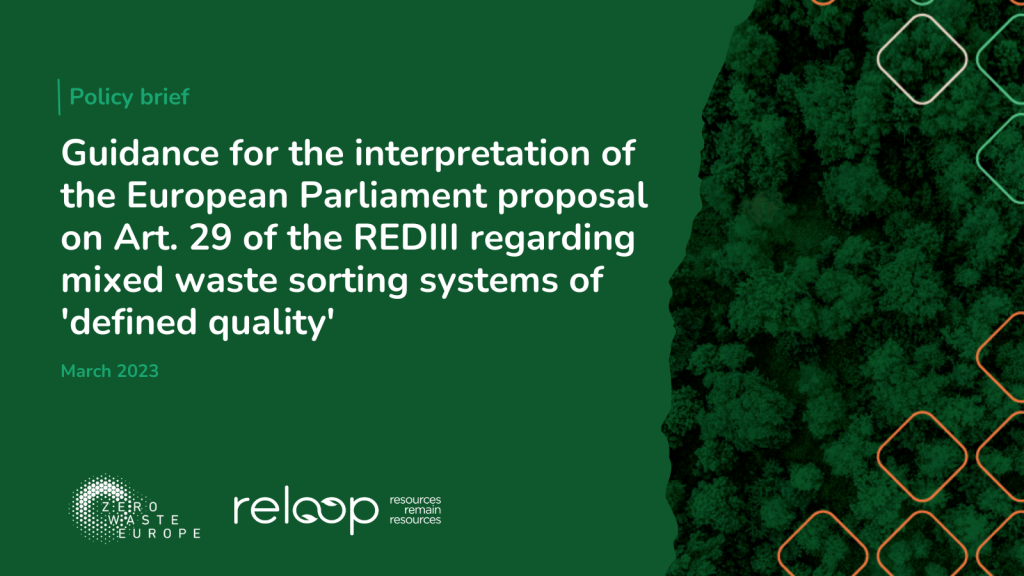
This policy briefing by Reloop and Zero Waste Europe provides guidelines for legislating mixed waste sorting (MWS) in the context of the Renewable Energy Directive (RED).
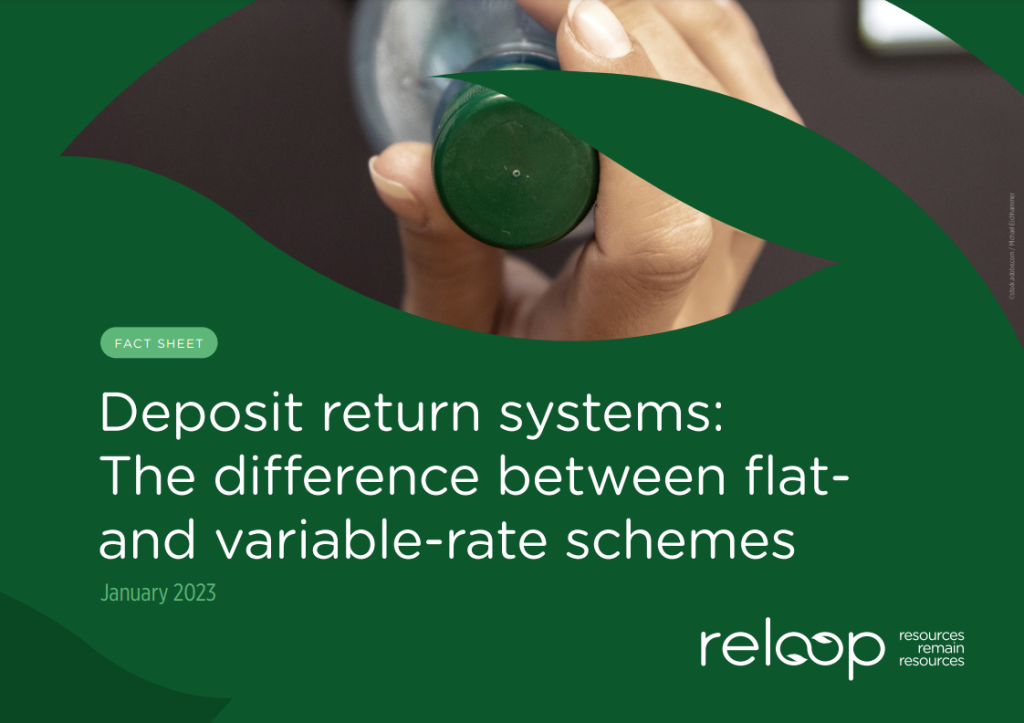
In this new fact sheet, we provide an overview of which jurisdictions use flat- vs. variable-rate deposits and how they perform.
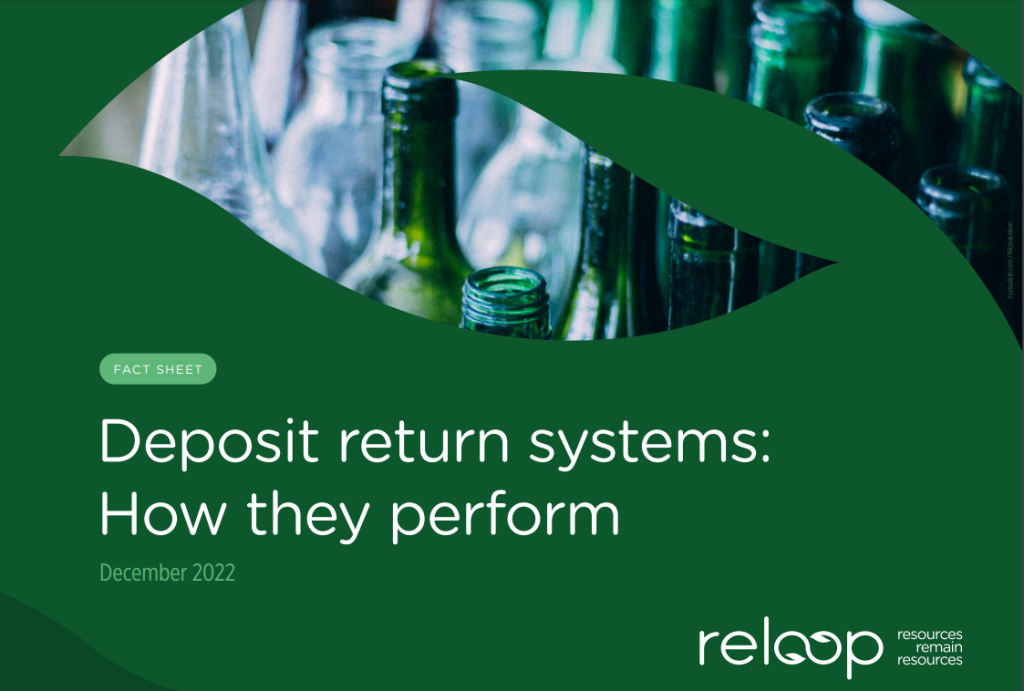
Our latest fact sheet, “Deposit return systems: How they perform” presents the most up-to-date performance data for DRSs worldwide.

Our policy brief explains what is necessary if the EU is to meet its recycling and carbon emissions reductions targets and achieve real circularity.
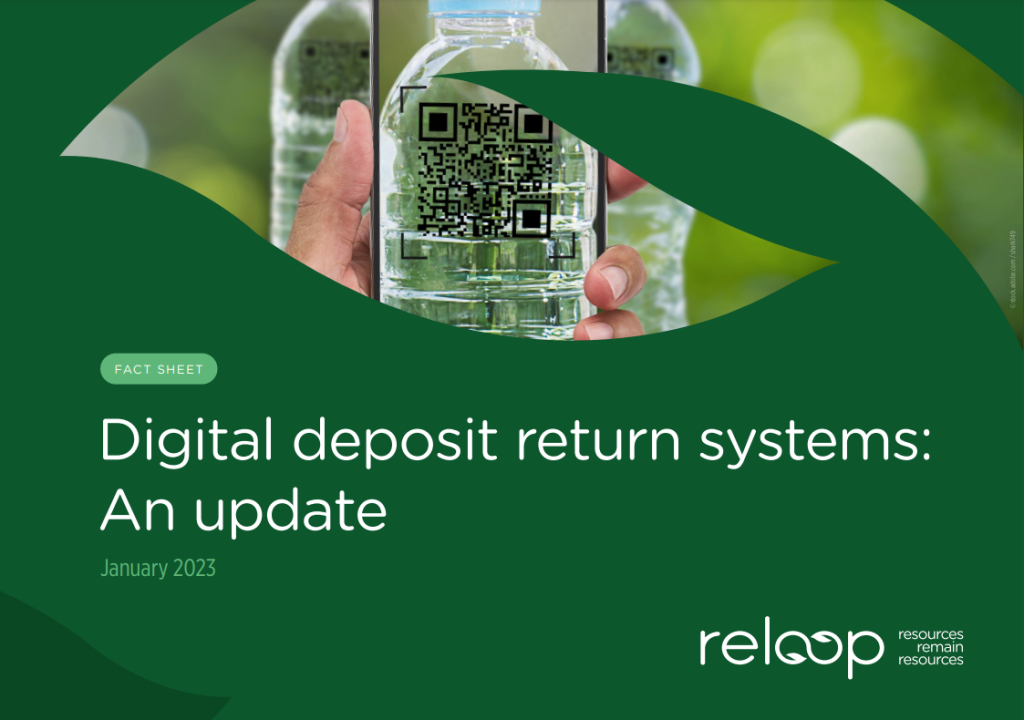
In this new fact sheet, Reloop provides an update on recent developments in DDRS, including an update on DDRS trials.